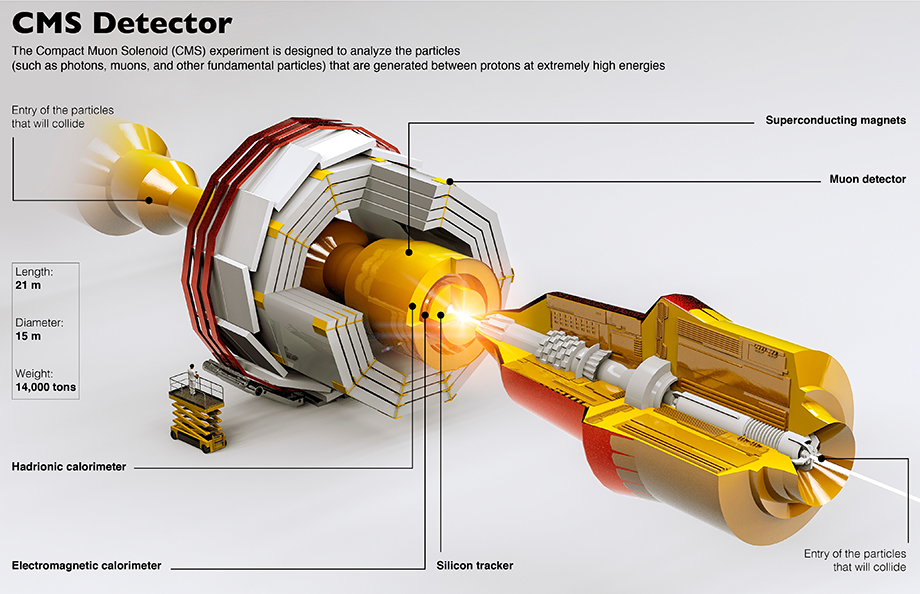Brunel University London has been backed by funding from the Science and Technology Facilities Council (STFC) to play its part in the future of particle physics research.
The university is one of just 18 British institutions to receive a share of a new £60m fund, which the STFC hopes will keep the UK at the forefront of physics, answering some of most fundamental questions in science whilst supporting the next generation of particle physicists.
The funding will allow Brunel to expand its work on the famous Large Hadron Collider at CERN, where the university’s researchers and students have a long history of working on some of the world’s biggest experiments.
That work includes the maintenance and operation of the Compact Muon Solenoid’s (CMS) massive Silicon Tracker, a detector that enables scientists to track the momentum of charged particles.

“The Silicon Tracker is right at heart of CERN’s CMS experiment and is one of the biggest silicon devices ever built – it’s about 200 square meters. Around the size of tennis court,” said Prof Akram Khan, Professor in Experimental Particle Physics at Brunel.
“It’s main function in life is to measure the tracks of particles. When you get a high energy collision, you get secondary particles coming from those collisions – and we help to work out what track the particles take and where they come from.”
Using the Silicon Tracker, CERN’s scientists can track the position of a particle to within about 10 microns, or about the width of a human hair.
The new STFC funding will also allow Brunel’s students and early-career researchers to continue working with CERN, where they have previously had the opportunity to work on some of the organisation’s biggest projects.
“Our students get the chance to work on some really cutting-edge technologies, like trigger system electronics. These are custom-built electronics which don’t exist elsewhere,” said Prof Khan.
“They can also be involved in testing out the algorithms, and sometimes developing and tweaking the algorithms. But I think the important thing is actually operating the algorithms and the hardware in real time – they really get to get their hands dirty!”
The STFC is one of the UK’s primary research funding bodies, backing particle physicists working in a range of fields, including dark matter, neutrinos and proton decay.
Announcing the funding, Professor Grahame Blair, STFC Executive Director for Programmes, said: “STFC continues to support the experimental particle physics community in the UK in answering fundamental questions about our universe.
“The grants are vital in supporting technicians, engineers and academics in their skills and expertise in the field, all while encouraging career development in fundamental research with both universities and international collaborators.
“This investment underpins the UK physics community and enables continued UK leadership in the field of experimental particle physics.
Reported by:
Press Office,
Media Relations
+44 (0)1895 268965
press-office@brunel.ac.uk